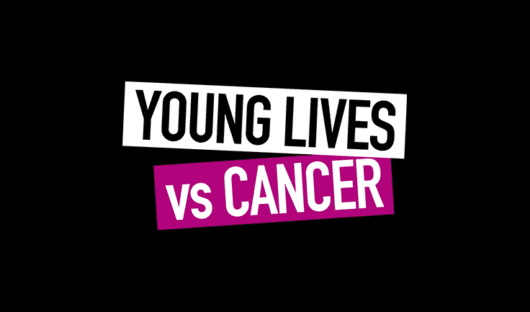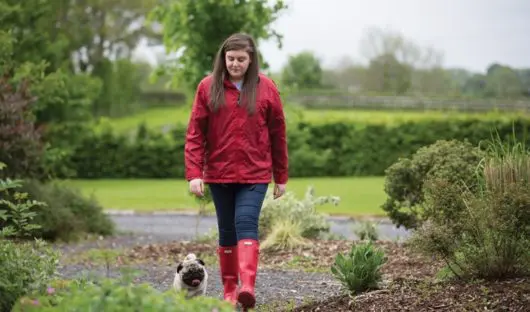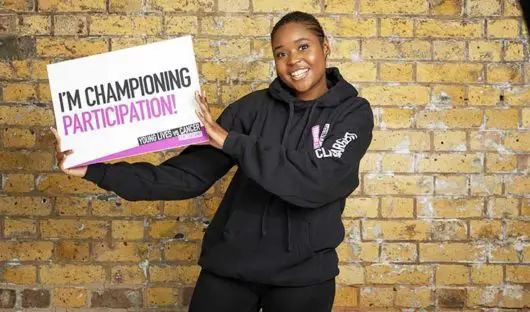Dealing with mixed emotions as your child approaches the end of cancer treatment
Mixed emotions and uncertainty can be a real challenge as your child approaches the end of cancer treatment. In this article parents of children who've finished treatment, and Young Lives vs Cancer Nurse Educator Linda, share some practical tips and suggestions on how to cope.
I was fine up until treatment ended and whilst I was so happy it was over, I knew the comfort blanket had been whipped away.
Mixed emotions? It’s totally normal
It’s very normal to have mixed emotions as your child is reaches the end of cancer treatment. You may be feeling relieved, happy and excited about getting back to something approaching a ‘normal’ of family life. But you’re also quite likely to be feeling overwhelmed at the thought of not seeing hospital staff and other parents who get how you feel. And naturally you might be worrying that your child may become unwell again. It’s a lot to contend with.
Tips from parents on how to cope
We asked our Parents and Carers Facebook Group how they felt when their child finished treatment, and what they did to cope. Here’s what they told us:
- “It’s totally normal to feel at a loss once treatment ends. You feel that you are thrown into the whole wide world without the safety net of a cancer-plan and your emotions will be running wild. Give yourself time to adjust just as you did at diagnosis because whilst there is most certainly a feeling of relief there is also a whole new way of living and you will need time and support to adjust accordingly”
- “You feel like you have been pushed off a cliff …I talked to friends, family and exercise helped also getting my house back to normal after all the time in hospital I found satisfying as I was achieving something …also getting involved with charities that helped us during treatment also helps me”
- “We had a lot of survivors guilt, especially as we follow some of the other families and their updates. It’s also very hard as it became a strong part of my identity, and to no longer have a child with cancer was almost a loss. We also were clearly suffering from PTSD, and didn’t know how to celebrate, or even if we should, with the spectre of recurrence”
- “Accept the worry will always be there but you’ve moved to a different stage. Try to do at least one thing you never could do when on treatment”
- “[Having mixed emotions is] very normal. Try to get into a routine but I think it’s important to recognise that you won’t slot into life pre-treatment, it’s more about the ‘new normal’ and working with that.”
Tips from Young Lives vs Cancer nurse educator
Nurse Educator Linda also has the following suggestions that can help you cope with how you’re feeling:
- Talk to your child’s treatment team about what you can expect when your child finishes treatment. Teams will normally have a follow up plan for your child. Knowing what this is may help you have realistic expectations
- Talk to other parents about how they dealt with the end of treatment. They’re likely to have useful tips or insight to share. If you haven’t done so already, think about joining Young Lives vs Cancer Parents and Carers Facebook group for support
- Seek advice from your child’s team about whether to contact your GP or the hospital if your child is unwell
- Try to take pleasure in small achievements like going to the park, or having nan to tea after school. Your confidence will grow as you recognise your family is beginning to settle into a new routine
- Remember that all family members will handle this time differently. Some might need to talk about when your child was on treatment. Others may find it difficult to revisit the ‘treatment days’, and prefer to focus on the future. Try to give each member of the family space to explain their own thoughts and feelings. If talking it through is difficult you could each write down how you’re feeling and share what you’ve written with each other
- Did your child have ‘beads of courage’? These can be a useful tool to help your child make sense of why they have been through, and take pride in getting to the end of treatment
- Have a look at our Understanding your emotions article. Although it’s aimed at parents whose child has recently been diagnosed, it contains suggestions that you might find useful to help handle how you’re feeling now.
If you’re struggling years on
Having a child diagnosed with cancer is a traumatic experience. But if what you’ve been through is still affecting your day-to-day life years on, it’s time to get some professional help. A counsellor or therapist can work with you to explore your past and present situations. They can help you deal with the issues that developed because of what you went through.
Your GP might be able to refer you to a counsellor or therapist. Or search the BACP website for an accredited counsellor. Many offer video of phone counselling.


